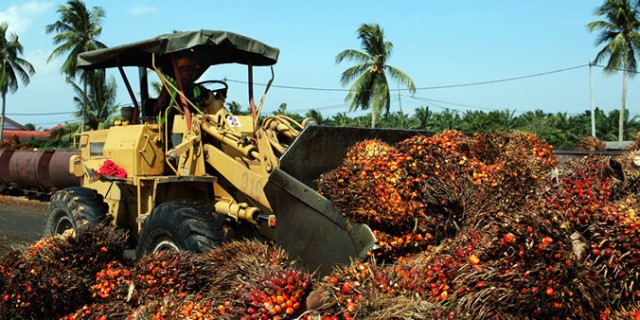There are heightened local efforts to enable Nigeria to take benefit of Indonesia’s palm oil export ban as competing countries to swoop in and extend their market share.
Indonesian President Joko reported a total export ban on all palm oil, crude and refined/processed, out of the country to tackle local price hikes. Palm oil prices could hit a record 8,100 ringgit ($1,938) a tonne following a plunge in global edible oil stocks and a decline in export surpluses, including the impact of the war in Ukraine.
Already, the ban is skyrocketing cooking oil prices even higher worldwide, exacerbating global food security fears amid adverse weather and the war in Ukraine.
Analysts said global palm oil prices have soared in recent months, with other vegetable oils, including sunflower and soy, on similar trajectories, driving the UN Food and Agriculture Organization’s vegetable oil price index to a record high in February – a peak that has continued to rise.
Speaking with The Nation, Chief Executive, Agricultural and Rural Management Training Institute (ARMTI), Dr. Olufemi Oladunni, said that Indonesia’s palm oil export ban has left the door open for Nigeria to expand its market share.
According to him, Nigeria could benefit from Indonesia’s palm oil ban and reap higher export profits this year.
Currently, Indonesia’s major import partners, such as China and the Philippines, have shown concerns with the move is likely to cause disruption and exacerbate price rises in food commodities, which were already running at 10-year highs in the Food and Agriculture Organization’s index.
Oladunni said the economy needs to ensure adequate supply for use in food, a state-backed Malaysian palm oil group said on Monday, warning of a supply crisis following an Indonesian ban on palm oil exports.
Malaysia and Indonesia were the top producers of palm oil, and Nigeria the fifth. Malaysia accounts for 31 percent of the global palm oil supply, second after Indonesia’s 56 percent.
National President, National Palm Producers Association of Nigeria (NPPAN) Amb Alphonsus Inyang said the association is working on increasing the distribution of oil palm seedlings.
Inyang told The Nation that the association is encouraging each family across the country to plant at least 20 oil palm seedlings.
Inyang stated that Nigeria could become self-sufficient in oil palm production if the government and other stakeholders put some measures in place.
He, however, said that to achieve self-sufficiency, there is a need for programs where seedlings, fertilizers, and other agrochemicals, will be made available to farmers, urging the government to partner with the association in the implementation of its One Family Twenty Palm Project’, where they give twenty seedlings and fertilizers to families.
He also called on state governments to partner with NPPAN in keying into the program, adding that “some states can plant 5 million oil palm trees, some 2 million, and another 3 million oil palm trees.
According to Inyang, palm trees, when planted, will be harvested for up to 50 years; one hectare of palm trees will give a minimum profit of N2 million from the third year.












